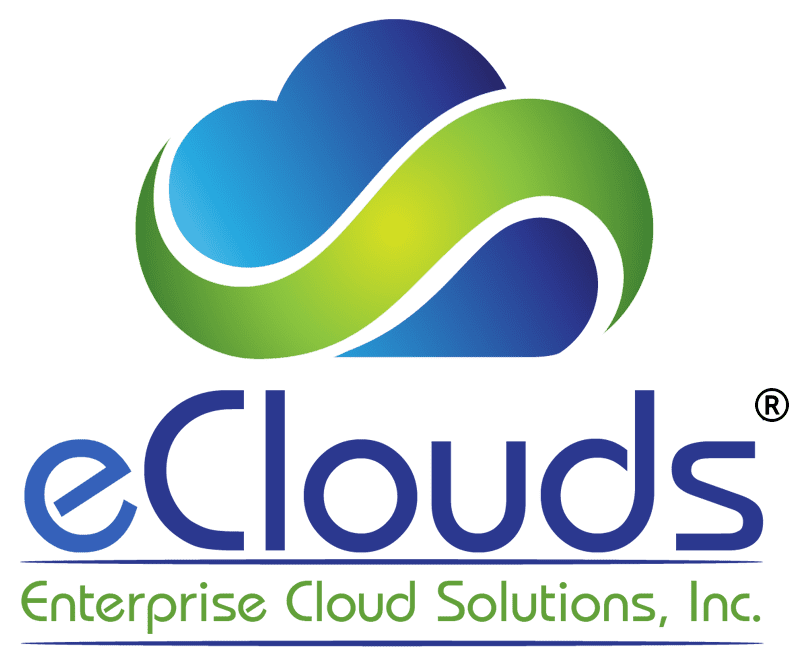What is Salesforce Pardot? Things You Need To Know
What is Pardot Used For?
At its most basic level, Salesforce Pardot is used for marketing automation. But what does that mean, exactly? Here are some of the key uses:
- Lead Generation and Nurturing: Pardot helps businesses identify potential customers ("leads") and guide them through their buying journey. This process is often called "lead nurturing." It involves providing leads with the right information and interactions at the right times to encourage them to become paying customers.
- Email Marketing: Pardot can automate sending out emails to customers and leads. This includes everything from promotional emails and newsletters to personalized messages based on a customer's behavior.
- Social Media Management: Pardot also provides tools for managing and automating social media posts. This can help businesses maintain a consistent online presence and reach customers on various social platforms.
- Sales Alignment: Because Pardot is integrated with Salesforce, it can help align marketing and sales teams. For example, leads generated through marketing efforts can be automatically routed to the sales team.
- Analytics and Reporting: Pardot provides a wide range of data and analytics on marketing campaigns. This includes tracking customer behavior on a website, measuring the success of email campaigns, and more. These insights can help businesses understand what's working, what's not, and how to improve their marketing strategies.

Difference Between Pardot and Salesforce Marketing Cloud
While Pardot and the Salesforce Marketing Cloud offer powerful marketing automation solutions, key differences may influence your decision. Let's explore these differences in more detail:
1. Target Audience and Use Cases
Pardot primarily caters to B2B organizations, focusing on lead generation, nurturing, and aligning marketing and sales efforts. It offers features specifically designed for B2B marketing, such as lead scoring and grading, sales integration, and account-based marketing.
On the other hand, the Salesforce Marketing Cloud caters to a broader audience, including both B2B and B2C organizations. It provides a wide range of marketing capabilities, including email marketing, social media marketing, mobile marketing, advertising, and data analytics, making it suitable for businesses with diverse marketing needs.
2. Feature Set and Complexity
Salesforce Pardot is renowned for its ease of use and simplicity. It offers a focused set of features specifically designed for B2B marketers, making it suitable for organizations looking for a streamlined and straightforward solution.
In contrast, the Salesforce Marketing Cloud offers a more extensive feature set, encompassing various marketing channels and capabilities. This breadth of features gives businesses more flexibility and customization options but may also result in a steeper learning curve and complexity.
3. Integration with Salesforce CRM
Pardot is tightly integrated with Salesforce CRM, offering seamless data synchronization and a unified view of your leads and customers. This integration allows efficient collaboration between marketing and sales teams, ensuring a smooth handoff of qualified leads and streamlined processes.
While the Salesforce Marketing Cloud can integrate with Salesforce CRM, the level of integration may vary based on the specific modules and features used. It is important to consider your organization's CRM requirements and assess how well the Marketing Cloud integrates with your existing Salesforce ecosystem.
Pardot and the Salesforce Marketing Cloud offer powerful marketing automation solutions with distinct features and target audiences. Pardot excels in B2B lead generation and nurturing, while the Salesforce Marketing Cloud provides broader marketing capabilities for both B2B and B2C organizations.
To make the right choice for your business, consider your marketing needs, target audience, and integration requirements. Selecting the most suitable solution empowers your marketing efforts, drives engagement, and achieves your business goals.

How Does Pardot Work with Salesforce?
Pardot and Salesforce work hand in hand to maximize the utilization of data collected by both platforms. The close integration between Pardot and Salesforce enables seamless data synchronization and collaboration. Here are some ways in which Pardot works with Salesforce:
Bidirectional Data Sync: The Salesforce-Pardot connector facilitates a bidirectional data sync between the platforms. This means that Pardot data is synced to Salesforce and vice versa. The synchronization occurs at various levels, allowing for a comprehensive data exchange. In a typical setup, Pardot shares new lead information and engagement data with Salesforce, while Salesforce provides Pardot with updates on lead qualification, opportunity progress, and product or service purchases.
Top of Funnel Integration: At the top of the sales funnel, Pardot focuses on attracting and acquiring leads through various marketing tactics, including search engine optimization (SEO), pay-per-click (PPC) advertising, social media campaigns, and content marketing. The data collected through these efforts are seamlessly transferred to Salesforce, providing the sales team with valuable insights and information about potential leads.
Middle of Funnel Integration: Pardot takes the acquired leads and engages with them through targeted marketing campaigns in the middle of the funnel. The platform nurtures these leads and gathers the necessary data to qualify them as prospects. This data is shared with Salesforce, enabling the sales team to understand the prospects' engagement history and make informed decisions.
Bottom of Funnel Integration: As the leads progress through the funnel and reach the bottom, where opportunities for conversion arise, Pardot continues to work closely with Salesforce. Pardot can provide Salesforce with updates on opportunity progress or stagnation, allowing for automated marketing journeys based on the stage of the opportunity. This integration ensures that the marketing efforts continue to support the sales process, even beyond lead qualification.
Influence Beyond the Funnel: The integration between Pardot and Salesforce extends beyond the traditional sales funnel. Marketing automation solutions like Pardot can play a role in influencing customer renewals, identifying upsell opportunities, or managing cancellations. By leveraging the data and insights gathered by both platforms, marketing teams can create targeted campaigns to drive customer retention and maximize revenue.
The tight integration between Pardot and Salesforce breaks down the barriers between marketing and sales teams, enabling them to collaborate effectively and leverage data throughout the customer journey. This integration empowers organizations to streamline their marketing and sales efforts, enhance lead management, and drive better results.
Benefits of using Pardot with Salesforce CRM
Integrating Pardot with Salesforce CRM offers numerous benefits that can significantly enhance your lead conversion and overall marketing and sales efforts. Here are some key advantages of using Pardot with Salesforce CRM:
- Streamlined Lead Management: Pardot, as a robust marketing automation platform, seamlessly integrates with Salesforce CRM, allowing for efficient lead management. The integration ensures all lead information and engagement data captured by Pardot is synced directly to Salesforce CRM. This streamlined process eliminates manual data entry, reduces the risk of data duplication, and provides a unified view of leads for your sales team.
- Improved Lead Nurturing: Pardot's advanced lead nurturing capabilities and comprehensive customer data stored in Salesforce CRM enable personalized and targeted marketing campaigns. By leveraging this integration, you can deliver tailored content and messages to your leads at each stage of the buyer's journey. This personalized approach enhances engagement, builds stronger relationships, and increases the likelihood of lead conversion.
- Enhanced Sales and Marketing Alignment: Integrating Pardot and Salesforce CRM fosters better alignment between your sales and marketing teams. Pardot's lead scoring and grading features allow your marketing team to identify and prioritize high-quality leads based on predefined criteria. These qualified leads are then seamlessly transferred to Salesforce CRM, enabling your sales team to focus on leads with the highest potential, resulting in improved conversion rates.
- Closed-Loop Reporting and Analytics: The integration provides comprehensive reporting and analytics capabilities, giving valuable insights into your marketing and sales performance. Pardot's campaign tracking and Salesforce CRM's opportunity management features allow you to measure the effectiveness of your marketing campaigns, track lead-to-opportunity conversion rates, and gain a holistic view of your sales pipeline. These insights enable data-driven decision-making and facilitate continuous optimization of your marketing strategies.
- Increased Productivity and Efficiency: By automating repetitive marketing tasks and eliminating manual data entry, the integration frees up time for your marketing and sales teams to focus on high-value activities. Pardot's automation features, such as email marketing automation and lead nurturing workflows, streamline processes and allow for more personalized and timely interactions with leads. This increased productivity and efficiency contribute to a more effective sales process and higher conversion rates.
- Scalability and Growth: The combined power of Pardot and Salesforce CRM provides a scalable solution that can support your organization's growth. As your business expands, the integration allows seamless data management, lead tracking, and marketing campaign execution. With the ability to handle larger volumes of leads and prospects, you can scale your marketing and sales efforts while maintaining personalized and effective communication with your target audience.
By leveraging the benefits of using Pardot with Salesforce CRM, you can optimize your lead conversion process, enhance sales and marketing alignment, and drive overall business growth. The integration empowers your organization to manage and nurture leads effectively, make data-driven decisions, and achieve better results in your marketing and sales endeavors.
Conclusion
Salesforce Pardot, now known as Marketing Cloud Account Engagement, is a great tool for businesses wanting to improve their marketing. It is a part of Salesforce and helps automate many marketing tasks like finding new customers and sending emails. This allows your team to focus on other important work. What makes Pardot valuable is its ability to help your business grow by finding potential customers, giving them personalized experiences, and turning them into loyal customers.
Pardot works seamlessly with Salesforce to improve how your sales and marketing teams work together. It's not just a tool for automating marketing tasks. Pardot is a complete platform that can help your business growth strategy, making it a great choice for any business that wants to boost its marketing results and make more money.

How eClouds Experts Can Help?
eClouds specializes in implementing Salesforce Pardot, previously known as Marketing Cloud Account Engagement. With our expertise across various industries, we understand the distinct requirements of businesses and deliver tailored solutions to meet your needs.
If you're looking for a partner to help set up Salesforce, eClouds is a great choice. We are a top Salesforce partner with over 16 years of experience in Salesforce. Our team of experts is certified and experienced in using Salesforce, and they're ready to help you set up and manage Salesforce in your business.

Citation Reference
The Pardot Time-to-Value Guide for Small and Medium Businesses. Retrieved from Salesforce (n.d).
Master Your Marketing: How To Convert More Leads With Pardot. Retrieved from Salesforce (n.d).
Why Pardot Is the Right Marketing Automation Tool for Sales and Marketing Alignment in SMBs (13 July 2021).
Marketing Cloud Engagement. Retrieved from Salesforce (n.d).
Marketing Cloud Account Engagement Pricing. Retrieved from Salesforce (n.d).
Popular Post

A Complete Guide to Understanding Salesforce Sales Cloud

5 Things You Should Consider in Choosing Your Salesforce Implementation Partner

11 Key Benefits of CPQ Every Business Needs to Know

10 Most Common CRM Implementation Challenges that You Must Be Aware Of






